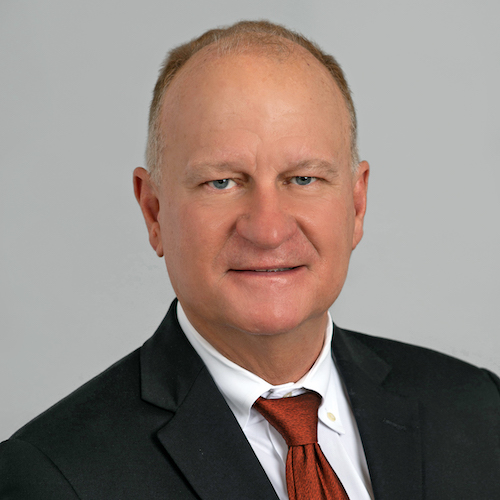13 June 2024
See how JMBM’s Global Hospitality Group® can help you.
Click here for the latest articles on Junk Fee Litigation.
Note: If you are a consumer with a Junk Fee issue, please do NOT contact us! We do not represent consumers. We represent owners, developers, lenders, and management of hotels, restaurants, and other hospitality-related properties. We advise them on litigation, labor, regulatory compliance, contracts, transactions, financing, development, and strategies.
HR 6543: The US Congress wants in on Junk Fee regulation for hotels
Over the past several weeks, we have written about recent major regulatory developments concerning Junk Fees, Hidden Fees, and Drip Pricing:
- California’s SB 478, The California Junk Fee Law, Honest Pricing Law, Transparent Pricing Law or Hidden Fees Statute
- California’s proposed SB 1524, which will carve out an exception for the restaurant industry from the application of SB 478, and an update on its
- FTC’s proposed rule on Unfair or Deceptive Fees, adding Part 464 to 16 CFR, defining junk fees and drip pricing to be unfair or deceptive acts or practices under Section 5(a)(1) of the FTC Act (15 U.S.C. 45(a)(1)
We now turn our attention to the very latest – the Federal proposed “No Hidden FEES Act of 2023”.
The House passes HR 6543 and enters the ring to regulate Junk Fees
for hotels and short-term lodging
by
Mark S. Adams
Hotel Dispute Lawyer, Partner & Senior Member
JMBM’s Global Hospitality Group
On June 11, 2024, the United States House of Representatives passed HR 6543, the so-called “No Hidden FEES Act of 2023” which introduces federal regulations aimed at enhancing transparency and fairness in the advertising of hotel room and short-term lodging prices. A critical component of this Act is its preemption clause, found in Section 4(a), which establishes a national standard prohibiting states from enforcing any laws that conflict with the federal mandate. This provision has significant implications for state regulations, such as California’s SB 478, which also aims to protect consumers from hidden fees in various transactions. The scope and application of this preemption clause are essential for assessing how state laws will be affected and ensuring compliance with the new federal standards.
Below, we compare the No Hidden FEES Act of 2023 to the Proposed FTC Rule on Junk Fees and California’s SB 478:
Preemption of SB 478 will be an issue if the No Hidden FEES Act of 2023 is enacted. As noted above, the “No Hidden FEES Act of 2023” would establish a national standard for advertising hotel room and short-term lodging prices. This national standard could preempt California’s SB 478 to the extent that SB 478 conflicts with federal law. Specifically, Section 4(a) of the No Hidden FEES Act of 2023 prohibits states from maintaining or enforcing laws that contradict the Act’s provisions on price advertising for short-term lodging. However, SB 478 might still apply to other types of transactions not covered by the federal Act, such as internet services and event tickets, unless explicitly preempted by other federal regulations.

Mark S. Adams, Hotel Dispute Lawyer, is an experienced trial lawyer and a senior member of JMBM’s Global Hospitality Group®. A primary focus of Mark’s practice is devoted to representing clients on hundreds of matters involving Hospitality Litigation, Arbitration & Dispute Resolution – from avoiding litigation to conducting complex, multi-state litigation, arbitration, and mediation.
Mark’s expertise is in business litigation involving contracts, corporate and partnership disputes, and hospitality disputes and litigation. On behalf of hotel and resort owners, Mark has successfully litigated the termination of long-term, no-cut, hotel management agreements, franchise agreements, fiduciary duty issues, investor-owner disputes, TOT assessments, and more. He has wide-ranging trial experience in various commercial disputes, including complex multi-party litigation and class actions. He has tried numerous cases in state courts, federal courts, and domestic and international arbitrations and is a frequent author and speaker on trial practice. Forbes, Reuters, and other publications have covered Mark’s trial wins. He obtained two of California’s 50 largest jury verdicts in the same year.
Mark has taken or defended nearly 1,000 depositions throughout North America, Europe, and the Middle East. The Wall Street Journal has quoted him as an expert on noncompete agreements. For more information, contact Mark at 949.623.7230 or markadams@jmbm.com.
For more recent articles written by Mark S. Adams, please see the following links:
Junk Fee Law: Exception for California restaurants moves forward
New Federal Junk Fee Law – The No Hidden FEES Act of 2023 (HR 6543)
Disclosing Mandatory Resort Fees – What Hoteliers Need to Know
The better way to resolve hotel contract disputes: Judicial Reference or Arbitration?
Should New York law govern your hospitality contract? How about Texas, California or Florida law?
Meet Mark S. Adams, Hotel Dispute Lawyer – Hospitality Litigation, Arbitration & Dispute Resolution
How Pennsylvania Resort Fees Settlements Could Play Out for US Hotel Industry
Force Majeure – Contract provisions and governing law are important
History & origins of Force Majeure as a contract defense
JMBM’s Global Hospitality Group® announces 5th edition of The HMA & Franchise Agreement Handbook
Hotel Lawyer on HMAs: “The shrinking terms of hotel management agreements”

This is Jim Butler, author of www.HotelLawBlog.com and founding partner of JMBM and JMBM’s Global Hospitality Group®. We provide business and legal advice to hotel owners, developers, independent operators, and investors. This advice covers critical hotel issues such as hotel purchase, sale, development, financing, franchise, management, ADA, and IP matters. We also have compelling experience in hotel litigation, union avoidance and union negotiations, and cybersecurity & data privacy.
JMBM’s Global Hospitality Group® has been involved in more than $125 billion of hotel transactions and more than 4,700 hotel properties located around the globe. Contact me at +1-310-201-3526 or jbutler@jmbm.com to discuss how we can help.
How can we help? Brochure Credentials Photo Gallery



